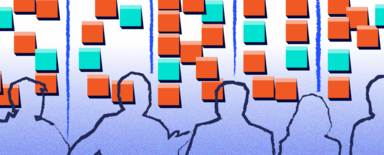
Drupal Agency Working Remotely
More and more software development companies (and not only those) start to move to a remote work setup. On one hand, it is the mark of current times, on the other - a result of recent global changes. The Covid19 pandemic is just a catalyst of the changes. It is also a test of how well the companies are prepared for the new situation. Remote work setup is something completely different to companies for which it was always part of the culture and something else for those who suddenly have to redefine all their working habits.
Remote work as part of a business continuity plan
Business continuity planning is one of the hallmarks of strong companies. If an organization has a plan, it means that the management looks into the future and prepares the company for an unforeseen crisis. Guaranteeing uninterrupted service delivery is key to successfully serving the customers, especially in tough times when they have problems of their own. Being a solid rock to lean is the best gift a company can give to its customers.
Remote work is a perfect approach to ensuring uninterrupted service. Thanks to organizing delivery processes in such a way that they can be executed from anywhere, service companies, including software development agencies, can ensure that the risk of service interruption is minimal.
In Droptica we always worked in with a remote-first philosophy in mind. Thanks to this, the current Covid19 crisis did not impact the services we provide. We could provide our clients with security. They were not exposed to any risk.
Droptica works remotely from the beginning of the company. Thanks to this, all the processes we built and all the tools we use work remotely and deliver expected results.
Moving to remote is not easy
Moving to remote work is not as easy as transporting computers to your employees’ homes. Successful remote work is only viable if the processes in the company allow for remote work. Companies moving to remote setup will have to create these and it will not always be easy. On some situations, a change in the whole company culture will be necessary. If you add to that the fact that not everyone is effective when working from home, some companies might have a tough time adjusting. A company is a complex organism and to work correctly all parts must fit together.
In Droptica, from the very beginning, also taking this into account in recruitment, we created teams which could work remotely. All the tools we chose and processes we architected had to always be suited for a distributed team. Thanks to this, the current move to fully remote did not require any changes to our daily operations. We still use the same tools and follow the same processes which worked for us and our clients successfully for years.
Tools - software
Luckily there are multiple tools which support distributed teams. Each company, however, has to create its own mix which matches its operational model and business processes. In Droptica we mostly use Slack, Jira, AWS and Github as our basic system tools. More information about the tools we use is available in a series of blog posts about our tools we use at work.
Tools - Hardware
Our employees’ mobility was always important to us. Thanks to the fact that all of our employees were always equipped with powerful laptops, remote work is super easy for us. Of course, to allow our programmers to be as effective as possible, we expect them to use a set of monitors. Each of our employees receives 2 additional monitors to supplement their laptop. We make sure that everyone has a well organised, ergonomic workplace.
Training, culture, organization
For the company to be successful as a distributed organisation, it has to place a great emphasis on the culture. There is a balance to be struck between the speed of responses to questions posted on messengers and such and the time required by developers to work focused (what is very important when you create code). The companies which got used to everyone being at the reach of a voice, when you could always walk over and ask a question will have to put a lot of work to adapt to achieve fast but efficient remote communication.
In Droptica we rely on SCRUM a lot to help us communicate. Thanks to SCRUM we hold meetings for specific reasons at predefined times. Apart from that, we worked out mechanisms of asynchronous and remote communication, which everyone to keep track of what is happening. Our team members are so used to working in a remote setup that they plan automatically plan around the fact that communication is asynchronous and deliver functionality without any interruptions.
Remote agency and the client
While switching to a remote firs setup, the company cannot forget about the client. Clients are the most important part of the production process in a Drupal agency. In the case of many companies, having to work remotely, new ways of communication and cooperation with clients will have to be established. This is especially the case if previously face to face meetings were the de-facto standard.
In Droptica we cooperate with clients remotely since the beginning. Majority of our clients reside in different countries than ours. Although we see each other online often (sometimes daily), direct personal contact is not required to communicate effectively and cooperate. Our employees are trained and experienced in remote work with clients from remote locations. Thanks to this, we are able to provide the service on the same level as always.
How to choose a remote agency
If you want to choose a distributed agency as your vendor, it is worth checking if:
- The agency actually works remotely and for how long
- Has processes in place which support project delivery and if these make sense
- Supports its developers in remote work including in organisation of their workstations
For more information about choosing the correct vendor, check out our post about choosing the best drupal team.
Remote agencies are more effective
In 2014 Harvard Business Review published findings of an experiment in which one of the call-centre companies wanted to verify “if” and “to what extent” remote work impacts employee effectiveness. For nine months half of the employees worked from home while the second half worked from the office. It turned out that 13.5% of employees working remotely did more calls to potential clients compared to the office group. It was estimated that in the 9-month period the company earned $1900 per employee and gained and an additional working day worth of work.
Summary
Working with a distributed Drupal agency makes perfect sense and can actually save you a lot of headaches, especially in turbulent times. Finding the correct one however may be a bit more challenging as working remotely successfully requires correct culture, processes and tools, things which cannot be obtained overnight.










